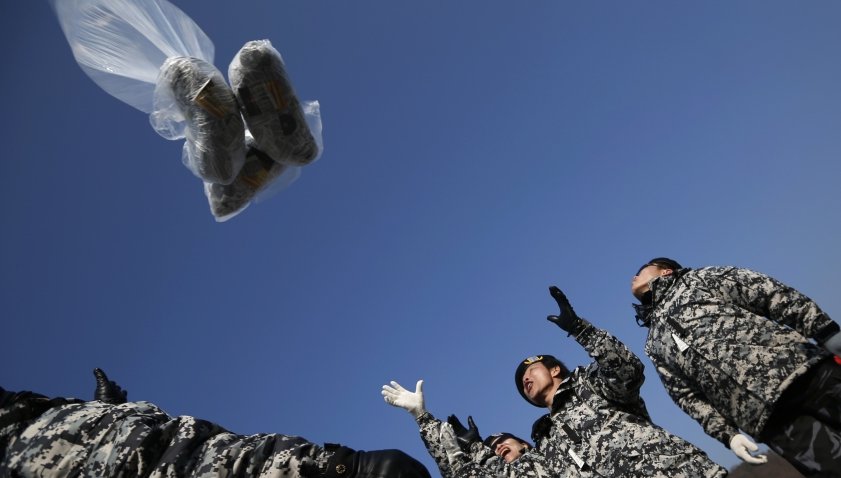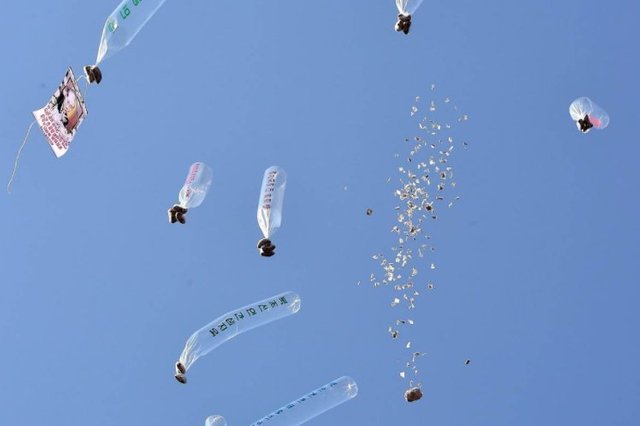HISTORY - Balloon Warriors of South Korea & Propaganda Operations

According to Paul, Joint Publication 102 defines information operations (IO) as "the integrated employment of the core capabilities of electronic warfare, computer network operations, psychological operations, military deception, and operations security, in concert with specified supporting and related capabilities, to influence, disrupt, corrupt, or usurp adversarial human and automated decision making while protecting our own" (Paul, 2008). While it can appear to be military focused, I believe this definition does well to highlight the numerous aspects of information operations. Similarly, it specifies that the goal of IO is to influence which has always been my vague belief of IO.
Also of interest was the war of ideas discussed by Paul. "The war of ideas is contested in the global information environment, largely through the media. Satellite television, the world wide web, and other forms of global media create unprecedented opportunities to share ideas and allow them to compete...Victories in the war of ideas come when you persuade others that your policies are not a threat to them, that their antagonistic behaviors will not get them what they want, or that spending or risking their lives is not the best way to pursue their goals" (Paul, 2008). One aspect to consider, though not discussed is credibility of the persuader. Consider the current geopolitical environment, in regards to western credibility which leaves much to be desired, despite the complicity of the unwashed masses.

One example of information operations is in the case of the "Balloon Warriors." For years, a North Korean defector has frequently sent balloons over the border to the DPRK with payloads consisting of radio sets, one dollar bills, computer memory sticks, and tens of thousands of leaflets bearing messages that [he claims] debunk the personality cult surrounding Kim Jong Un. In South Korea, there are approximately 50 "Balloon Warriors" many of them North Korean defectors as well. He launches between 700 and 1,500 balloons a year, each carrying 30,000 to 60,000 leaflets (SangHun, 2016). These efforts have prompted others to defect, though the numbers are low. This low defection rate could also be a testament to the difficulty in fleeing North Korea, though there are no figures to prove this theory. Ironically greed becomes synonymous with Western propaganda methods.
In addition as for North Korea, Gomichon cites Nye when he states that, "Nye finally acknowledges that soft power does not always have good purposes, as for example propaganda is a form of soft power: 'It is not necessarily better to twist minds than to twist arms'" (Gomichon, 2013). I think this sums up North Korea pretty accurately.
References:
Gomichon, Maxime. "Joseph Nye on Soft Power." EInternational Relations.
http://www.eir.info/2013/03/08/josephnyeonsoftpower/
Paul, Christopher. Information Operations: Doctrine and Practice: A Reference Handbook. Westport, CT: Praeger Security International, 2008.
SangHun, Choe. "A 'Balloon Warrior' Subverts North Korea, Thousands of Leaflets at a Time." The New York Times. October 14,
https://www.nytimes.com/2016/10/15/world/asia/southnorthkoreaballoondrop.html?_r=0.
So informative.
Glad I stopped by